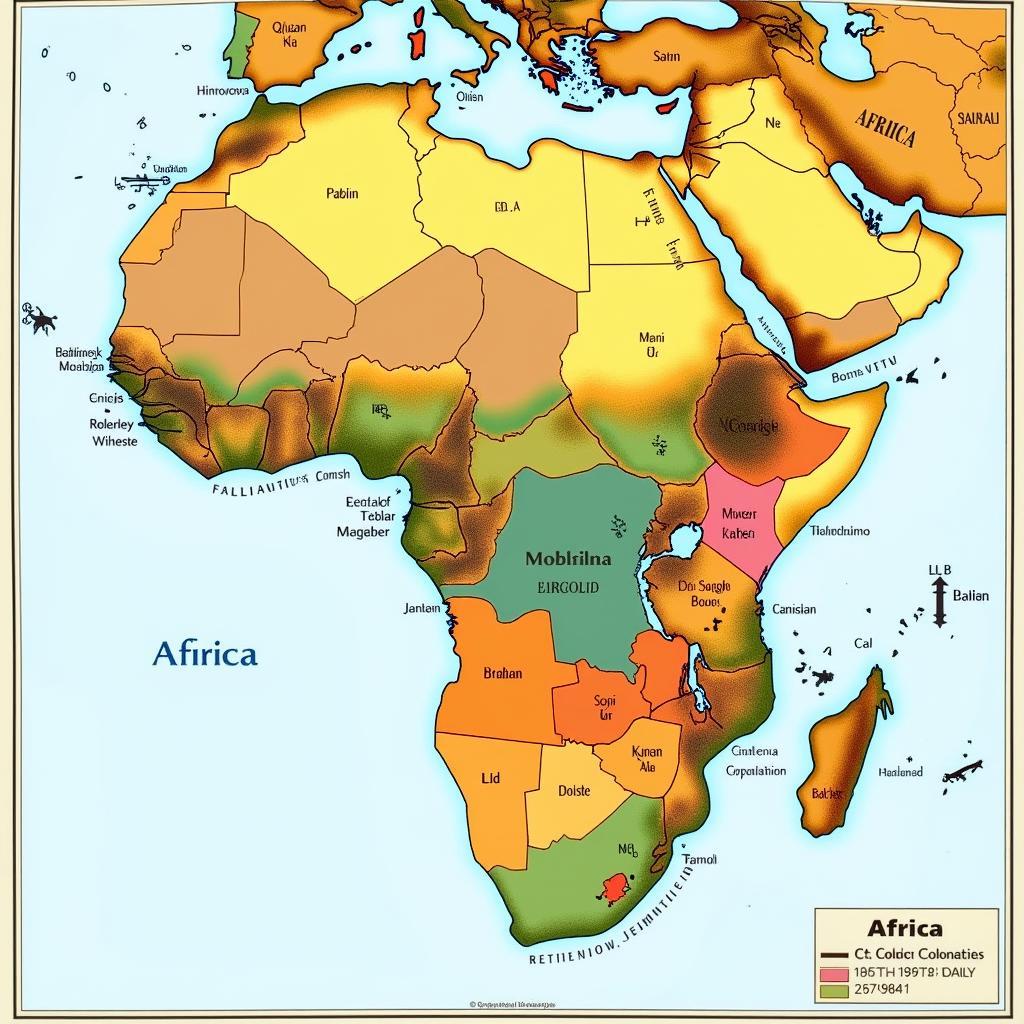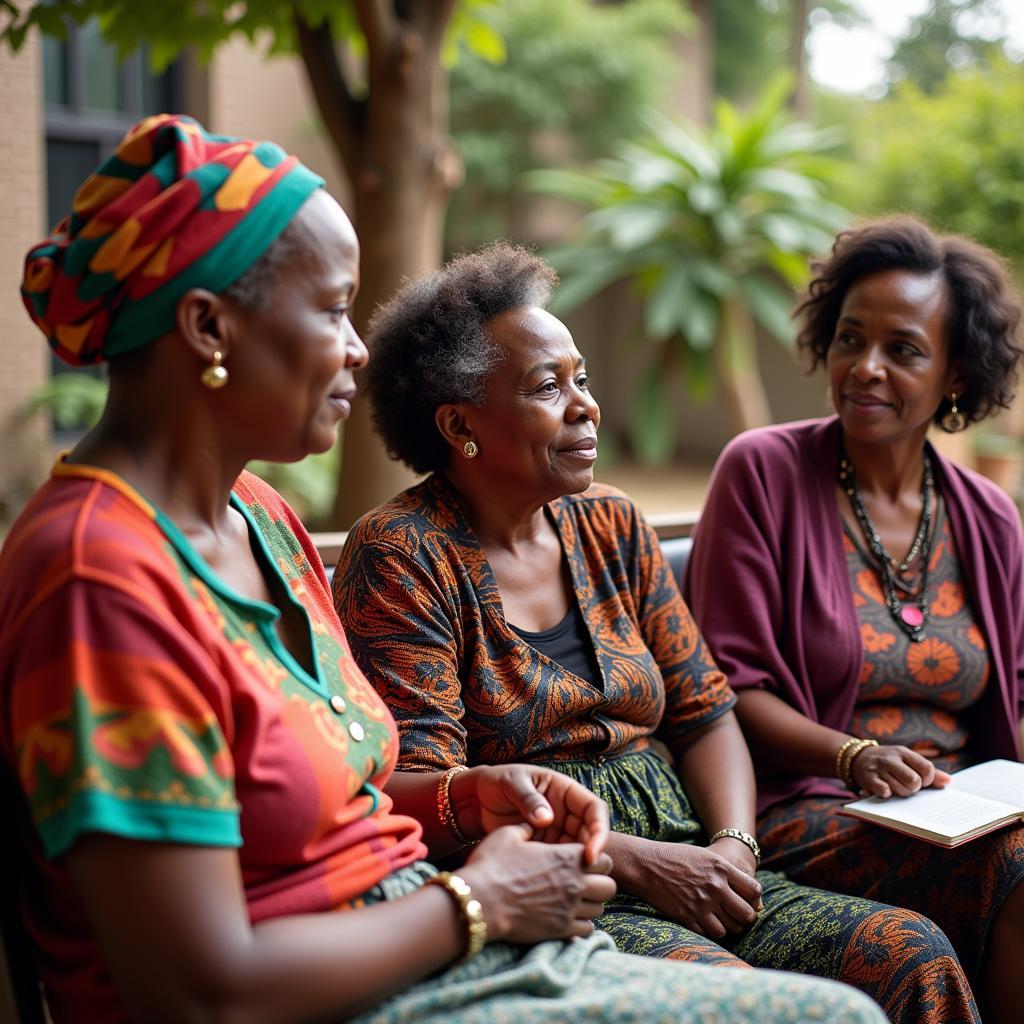African Countries and Their Colonial Names: A Journey Through History
African Countries And Their Colonial Names are intertwined, revealing a complex history of exploitation, resilience, and eventual independence. This article delves into the legacy of colonialism, exploring how these imposed names impacted the continent and its people, and how the transition to independent nationhood involved reclaiming identity through renaming.
The Scramble for Africa and Its Naming Legacy
The late 19th century witnessed the “Scramble for Africa,” a period of intense colonization by European powers. These colonizers not only seized land and resources but also imposed new names on the territories they controlled, often reflecting European figures, geographical features, or even misconceptions about the local populations. This act of renaming was a powerful tool of control, erasing existing identities and asserting European dominance. Understanding this history is crucial to understanding the present-day landscape of the continent.
Some names, like Rhodesia (now Zimbabwe and Zambia), honored British imperialist Cecil Rhodes, while others, like German East Africa (now Tanzania), simply denoted the colonizer’s geographical claim. These imposed names disregarded the rich history and cultural significance of pre-colonial names, contributing to the suppression of African heritage and identity.
 Colonial Map of Africa
Colonial Map of Africa
From Colonial Names to Reclaimed Identities
The mid-20th century saw a wave of independence movements sweep across Africa. As nations gained sovereignty, many chose to shed their colonial names and adopt new ones that reflected their own history, culture, and aspirations. This act of renaming was a powerful symbol of self-determination and a rejection of colonial rule. It marked a reclaiming of African identity and a step towards forging a new future.
Gold Coast, for instance, became Ghana, reclaiming a historical empire. Similarly, Nyasaland transformed into Malawi, embracing a local name for Lake Malawi. These changes signified not just a change in name but a fundamental shift in power and self-perception. They represent the resilience of African people and their determination to shape their own destinies.
Why were African countries given colonial names?
Colonial names served to legitimize European control, erase indigenous identities, and facilitate administration from a European perspective. They were a tool of power and a symbol of subjugation.
How did colonial naming impact African identity?
Imposing new names disrupted cultural continuity, fostered feelings of inferiority, and created a disconnect between people and their land. It was a deliberate attempt to erase the past and impose a new, European-centric narrative.
The Lingering Impact of Colonial Names
While many countries have successfully transitioned to new names, the legacy of colonial naming still persists in various forms. Some geographical features, institutions, and even street names retain their colonial designations, serving as reminders of a complex past. These remnants spark ongoing debates about historical memory, cultural preservation, and the ongoing process of decolonization.
Looking at African country flags highlights the visual representation of this reclaimed identity. Each flag tells a story of a nation’s journey, often reflecting its unique culture and history.
It is worthwhile to explore other aspects of African culture and heritage, like the African countries ending in y or understanding the geographic nuances via resources like African countries wiki. You can also delve deeper into regional differences by exploring African features by country. For sports enthusiasts, learning about African cricket playing countries can offer a fascinating glimpse into the continent’s diverse sporting landscape.
Conclusion
Examining African countries and their colonial names unveils a crucial chapter in the continent’s history. The transition from imposed names to reclaimed identities signifies a powerful journey of self-determination and cultural revival. Understanding this history provides valuable insight into the complexities of African identity and the ongoing process of decolonization.
FAQ
-
What was the “Scramble for Africa”? The “Scramble for Africa” refers to the rapid colonization of the African continent by European powers in the late 19th century.
-
Why did colonial powers rename African territories? Renaming served as a tool of control, erasing indigenous identities and asserting European dominance.
-
When did most African countries gain independence? The majority of African countries achieved independence in the mid-20th century.
-
What are some examples of countries that changed their names after independence? Gold Coast became Ghana, Nyasaland became Malawi, and Rhodesia became Zimbabwe and Zambia.
-
Does the legacy of colonial naming still exist today? Yes, remnants of colonial naming can still be found in some geographical features, institutions, and street names.
-
Why is understanding this history important? It provides valuable context for understanding the complexities of African identity and the ongoing process of decolonization.
-
Where can I learn more about the history of specific African countries? Resources like African countries wiki offer comprehensive information.
Need Help?
When you need assistance, please contact us by Phone: +255768904061, Email: kaka.mag@gmail.com Or visit us at: Mbarali DC Mawindi, Kangaga, Tanzania. We have a 24/7 customer service team.


